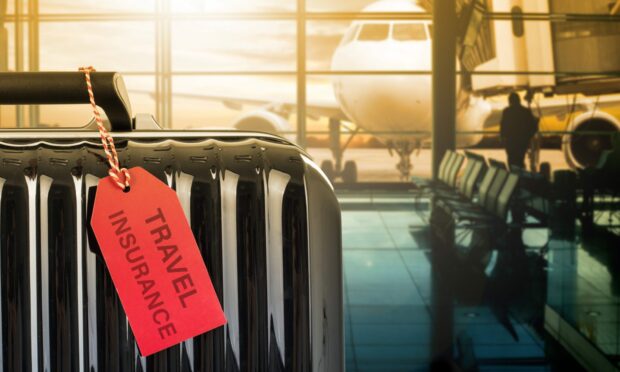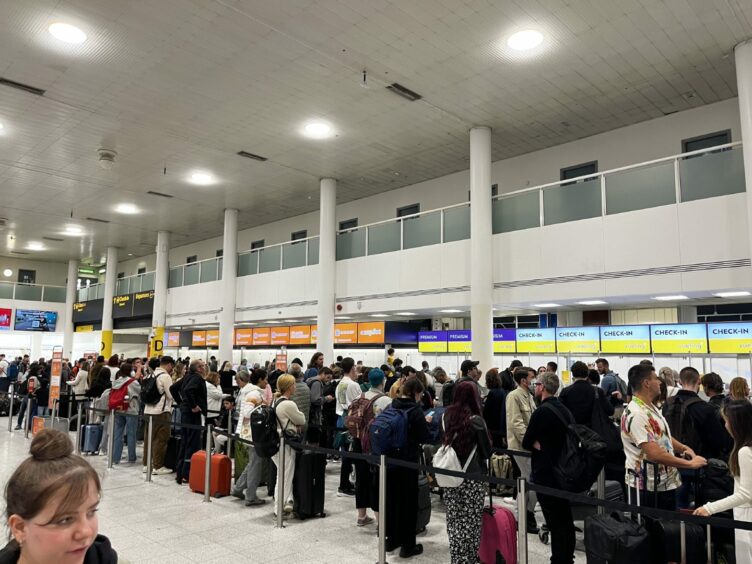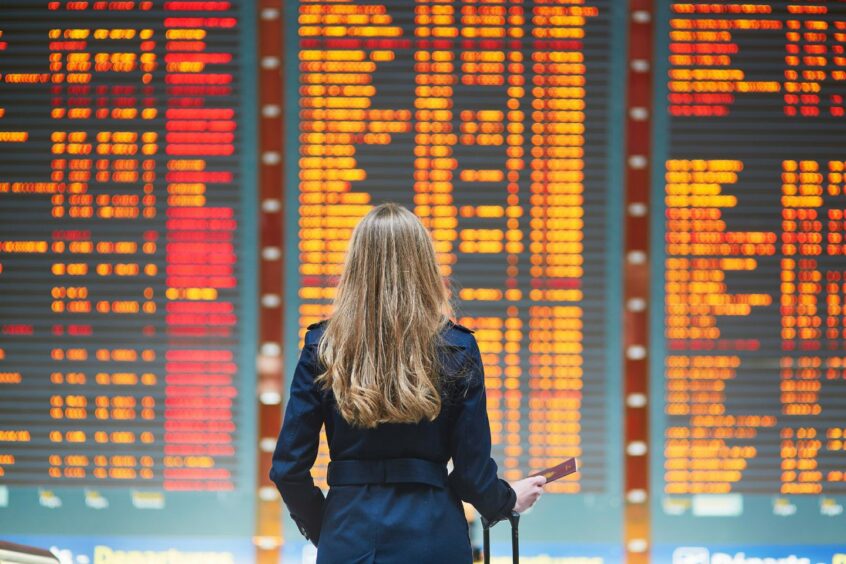Advice Direct Scotland (ADS) is urging people going abroad to buy travel or medical insurance, or to check if they are already covered, and to know their rights if flights are delayed or cancelled.
It comes amid a wave of flight cancellations as airlines and airports struggle to cope with labour shortages and strong demand for travel following the easing of Covid restrictions. One airline, Flybe, has run out of aircraft to deliver its summer schedule.
Many thousands of people across the UK have suffered disruption to their holiday plans.
Travel insurance offers extra protection and solutions if things go wrong. It can cover delays in departure, cancelled or shortened trips, medical emergencies, and accidental damage, or help if a travel provider goes out of business.
Meanwhile, Brexit has had major implications for UK travellers. These include their health cover in the EU and from next May UK citizens must register and pay for a visa waiver – likely to be £6 per adult – to enter the EU and some other European countries.
Colin Mathieson of ADS, Scotland’s national advice service, said: “Many Scots will not have travelled abroad for a number of years due to Covid restrictions.
“It’s important people realise before they jet off on summer holidays there may be several changes to what they are perhaps used to. Brexit has had an impact on the health cover we have when travelling within the European Union.
“People should ensure they have adequate protection in terms of travel insurance and access to healthcare in the unfortunate event that something goes wrong.”
Brexit has had an impact on the health cover we have when travelling within the European Union.”
He added: “Staffing issues in the aviation industry have also led to delays and cancellations at airports, so people should be aware of their rights around compensation and assistance if they are held up.
“Ensuring consumers are protected is more important than ever, which is why specialist advisers at consumeradvice.scot have put together some key information and guidance about areas that may impact on consumers this summer.”
Advice Direct Scotland holiday tips
Delayed or cancelled flights
Legally, airlines must help passengers when their flights are delayed or cancelled, or if they cannot board a flight due to overbooking. This includes offering a refund or rerouting them to their destination.
After Brexit, the EU’s EC261 regulation was transferred to UK law and highlights that airlines must give passengers the option of rerouting to their destination at the earliest opportunity. This includes the offer of a flight on an alternative airline if this is the most appropriate option.
For EU-regulated flights that are cancelled, and where “extraordinary circumstances” like severe weather or security risks do not apply, customers can ask for a refund or choose to take an alternative flight. Compensation can be claimed where less than 14 days’ notice was given for the cancellation. The amount will vary but usually starts at €125 (about £106).
Passengers facing delays of two hours or more for short-haul flights may be entitled to assistance including free meals and refreshments and free accommodation, or hotel transfers if an overnight stay is required. For medium-haul flights of two to four hours, the delay must be three hours or more to claim compensation, rising to four hours for long-haul journeys. If the delay lasts longer than five hours, customers may be able to choose between being rerouted on a different flight or getting a refund.
Lost or damaged luggage
Travellers may be entitled to make a claim against an airline if their luggage is lost, stolen or damaged after being checked in. The airline will consider the age of any items, and they are unlikely to cover the cost of replacing an old item with a new one. If a person has travelled with multiple airlines on their journey, it would normally be the last airline they used that they would make a claim to. The maximum amount for any claim would be £1,000, however it is rare than an airline would pay out this much.
Bank card fees
Banks charge fees of up to 3% for most foreign transactions. This applies when people use their debit card to withdraw cash or buy things while they are abroad. Some banks may also add an extra charge, known as a “non-sterling purchase fee” of between £1 and £3 per transaction.
Passports
UK passport holders may need to renew their passport earlier than planned. The UK Government now recommends people should have at least six months left on their passport from the date of arrival in most EU countries, not including Ireland.




Conversation